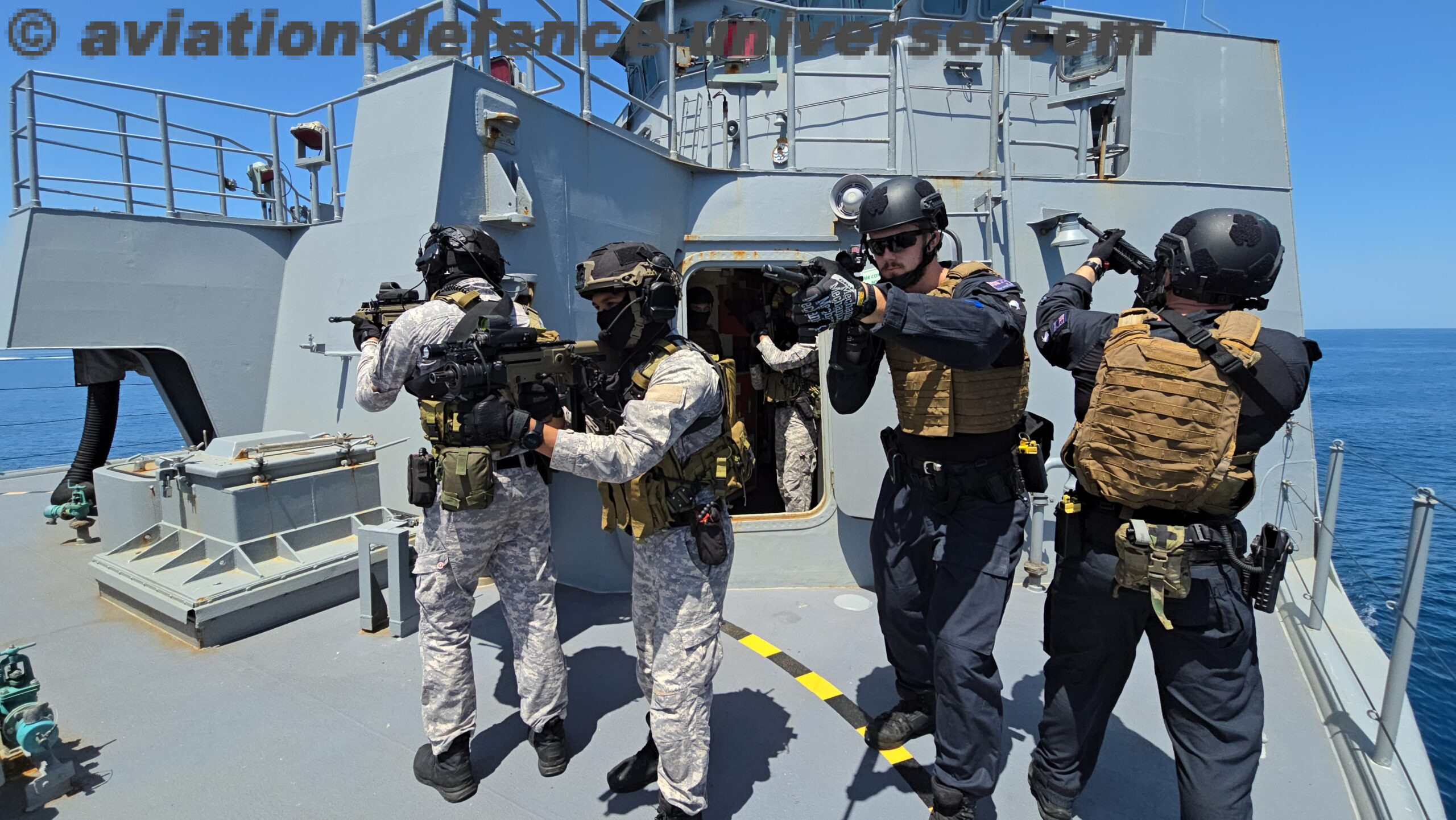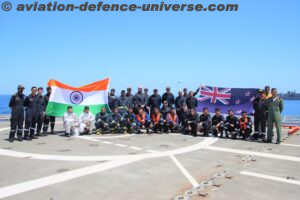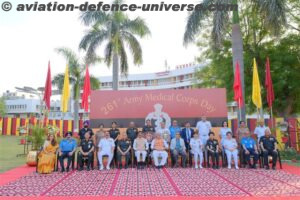- The facility will ensure ‘secure & real-time communication’ between ships/submarines with command centres safeguarding maritime interests
- State-of-the-art platforms & fool-proof communication system must for India to remain a strong deep sea force, says Shri Rajnath Singh
- “Indian Navy is the biggest guarantee of peace in the Indian Ocean Region”
- “Maritime security is a collective effort; All friendly countries must work together to maintain peace & order in IOR”
- “India believes in uniting rather than dividing; Security wheel breaks if even one country is left out”
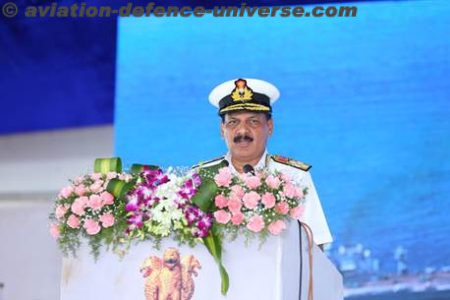 Raksha Mantri Shri Rajnath Singh laid the foundation stone of a new Very Low Frequency (VLF) Station of the Indian Navy at the Damagundam Reserve Forest site, Pudur Mandal in Vikarabad, Telangana on October 15, 2024. The facility, built at a cost of Rs 3,200 crore, will be spread across 2,900 acres. It will bolster the Indian Navy’s operational readiness, ensuring effective command and control capabilities in challenging maritime environments. It will play a pivotal role in strengthening the Naval communication infrastructure, enabling reliable and secure transmission over long distances.
Raksha Mantri Shri Rajnath Singh laid the foundation stone of a new Very Low Frequency (VLF) Station of the Indian Navy at the Damagundam Reserve Forest site, Pudur Mandal in Vikarabad, Telangana on October 15, 2024. The facility, built at a cost of Rs 3,200 crore, will be spread across 2,900 acres. It will bolster the Indian Navy’s operational readiness, ensuring effective command and control capabilities in challenging maritime environments. It will play a pivotal role in strengthening the Naval communication infrastructure, enabling reliable and secure transmission over long distances.
Speaking on the occasion, Raksha Mantri exuded confidence that the VLF station would expand the military capabilities of the country, proving to be a boon to the Armed Forces. He asserted that the high-tech VLF station, once operational, would not just be a military establishment, but a strategic asset of national importance.
“Effective coordination between men and machines is becoming extremely important in view of the evolving methods of warfare. This VLF station is being built with the vision of securing our maritime interests. It will ensure secure and real-time communication between our ships & submarines with the command centres of the Armed Forces. A fool-proof communication proves to be a decisive factor between victory and defeat. Without real time communication, we cannot gain an edge despite having adequate equipment or manpower,” Shri Rajnath Singh said.
Further highlighting the significance of a strong communication system, Raksha Mantri termed it as pivotal for coordination in any complex operation. He emphasised that a clear and secure communication channel not only helps in timely & effective decision making, but also an important medium to convey the orders of the command to the field formations and obtain the feedback.
Shri Rajnath Singh added that if soldiers are fully informed in a battlefield or an operational environment, their morale & unity receive a major boost, enhancing both safety and strategy. “During crisis management, a clear communication channel is the key. It becomes even more necessary when the situation is dynamic and the response time is very less. These things are historically proven. We’re learning from the past and striving for future security and prosperity,” he added.
Raksha Mantri laid stress on the need to continuously empower the Indian Navy in view of the ever-growing global interest in the Indian Ocean Region (IOR). “Our interest is spread across the Indo-Pacific region. We have also emerged as the first responder and a preferred security partner in the IOR. Today, many countries have shifted their focus towards marine resources in the region. If India has to secure its commercial & security interests and remain a strong deep sea force, it is necessary to possess state-of-the-art platforms/equipment and a strong communication system,” he added.
Citing a saying ‘A good Navy is not a provocation to war, but a surety of peace’. Shri Rajnath Singh termed the Indian Navy as the biggest guarantee of peace in the entire IOR, including the Bay of Bengal. “The countries with which India shares its maritime boundaries should understand that maritime security is a collective effort. Summoning external forces at your doorstep hurts this effort. Maintaining peace & order in the Bay of Bengal and IOR should be the top priority of all of us. The support of all friendly countries is necessary in this endeavour of India as even if one country is left out, the entire security wheel breaks. India believes in uniting rather than dividing. We are taking every possible step to move ahead with all the friendly neighbouring countries together,” he added.
Allaying concerns about the impact of the project on the environment, Raksha Mantri stated that all environmental conditions are being taken care of. It is being ensured that arrangements will be made for the rehabilitation of the affected people, if needed, at the time of construction, he added. He termed sustainable development as one of the priorities of the Government, stating that it is being ensured that the new technology in this VLF station does not have a negative impact on the environment.
Shri Rajnath Singh added that the VLF station will open new vistas of employment and economic development for the local population. “During its construction, skilled and unskilled workers of the surrounding area will get employment. Even after that, when the station starts functioning, there will be ample employment opportunities for the people. This station will not only increase employment, but also work as a growth pole, providing further impetus to the economic development in the surrounding areas,” he said.
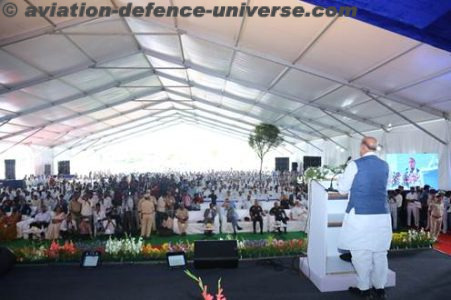
Raksha Mantri expressed gratitude to all the stakeholders involved with the project, especially the local community, for their support. “When it comes to the security & sovereignty of the nation, all the people rise above ideologies, religions & sects and become one,” he said.
Shri Rajnath Singh also paid glowing tributes to the Missile Man of India, former President Dr APJ Abdul Kalam on his birth anniversary. “Dr Kalam’s contribution in India’s defence sector will be remembered for a long time. He not only provided India with new military technology, but also inspired a generation of scientists and engineers,” he said.
In his address, Chief of the Naval Staff Admiral Dinesh K Tripathi stated that the project is set to herald a new chapter in Indian Navy’s communication capabilities by ensuring a secure, robust, responsive, and reliable command, control and communication network across the oceans. He added that the facility, once completed, would complement the existing VLF station at INS Kattabomman, in Tirunelveli.
“This VLF station would play an important role in enabling the seamless secure worldwide communication, including most importantly, with our dived submarines, thus ensuring their stealth and enhanced effectiveness. May it stand tall, as a testament to the strength and standing of our nation today, and the unwavering commitment of our Navy to protect and promote our National Maritime Interests – Anytime, Anywhere, Anyhow,” the Chief of the Naval Staff said.
Telangana Chief Minister Shri A Revanth Reddy, Minister of State for Home Affairs Shri Bandi Sanjay Kumar, Minister for Forests & Environment, Telangana Government Smt Konda Surekha Garu, Flag Officer Commanding-in-Chief, Eastern Naval Command Vice Admiral Rajesh Pendharkar and other senior officials of Ministry of Defence & state government were present on the occasion.

































